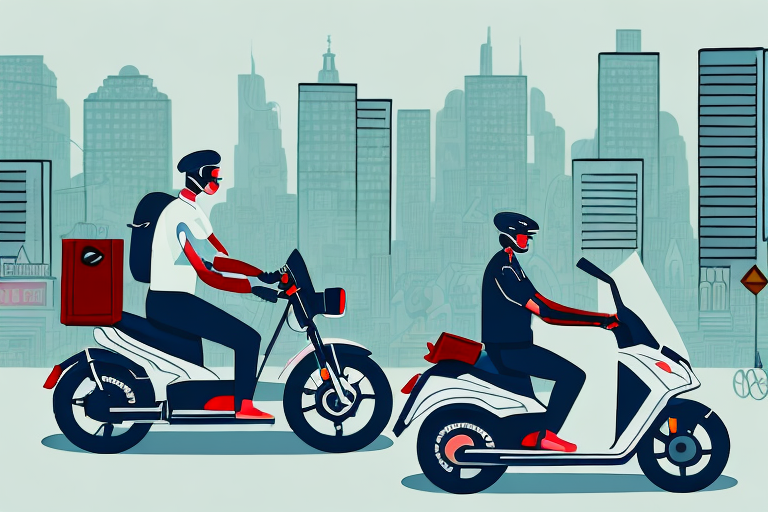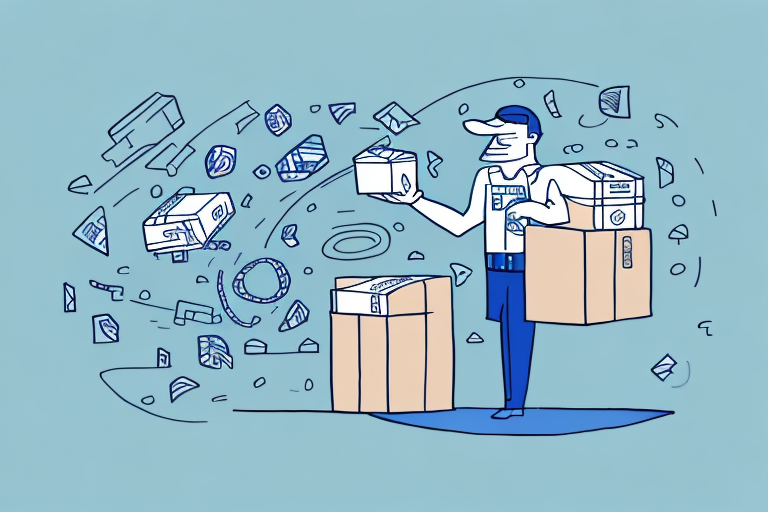Exploring the Benefits of Independent Contractor Courier Jobs
Are you looking for a job that offers flexibility, independence, and the potential for high earnings? An independent contractor courier position might be the perfect fit for you. In this article, we’ll explore what it means to be an independent contractor courier, why this industry is experiencing growth, and the many benefits of this type of work.
Understanding Independent Contractor Courier Roles
An independent contractor courier is a self-employed individual who delivers packages, documents, and other items on behalf of businesses and individuals. Unlike traditional employees, independent contractors work on a contract basis and are not considered employees of the companies they serve. This arrangement provides more control over work schedules and delivery methods but also entails greater financial responsibility and risk.
Independent contractor couriers are often hired by businesses that require swift and efficient delivery services. They may work for courier companies or directly for businesses, managing their own transportation and equipment, such as cars, bikes, GPS devices, and delivery bags. Additionally, they handle their own taxes and insurance, which can be challenging but rewarding for those seeking flexibility and higher earnings potential.
Industry Growth and Market Demand
The rise of e-commerce has significantly increased the demand for delivery services. According to a report by Statista, global e-commerce sales are expected to reach $6.54 trillion by 2023, fueling the need for more delivery services. The COVID-19 pandemic further accelerated this trend, with a surge in online shopping and home deliveries.
Independent contractor couriers offer a flexible and cost-effective solution compared to traditional delivery companies. They provide a personalized and efficient delivery experience, often operating within a smaller geographic radius, which allows for faster and more reliable service. Moreover, many couriers use eco-friendly transportation methods, contributing to sustainability goals and appealing to environmentally conscious consumers.
Advantages of Being an Independent Contractor Courier
Flexible Work Hours and Schedule
One of the most significant benefits is the ability to set your own hours. This flexibility allows you to work as much or as little as you desire, accommodating personal and financial needs.
Higher Earnings Potential
Independent contractors can negotiate their own rates and choose their delivery assignments, potentially earning more than traditional employees. Building a loyal customer base can lead to increased income over time.
Autonomy and Control
Couriers have the freedom to select their delivery routes and locations, allowing them to tailor their work environment to their preferences and avoid areas they’re uncomfortable with.
Minimal Startup Costs
Starting as an independent contractor typically requires only a reliable vehicle, insurance, and a smartphone. Many courier companies offer training and necessary equipment to help you get started with minimal overhead.
Work-Life Balance
With the ability to control your schedule, couriers can achieve a better work-life balance, making time for personal activities and reducing the risk of burnout.
Building a Successful Career
Finding Job Opportunities
To become an independent contractor courier, consider the following steps:
- Research and connect with reputable delivery companies in your area.
- Attend job fairs and networking events to meet potential employers.
- Create a strong online presence and market your services through social media platforms.
- Reach out to local businesses that may need delivery services.
Having a reliable vehicle and a clean driving record is essential. Many companies require proof of insurance and a valid driver’s license before hiring.
Providing Excellent Service
Success as a courier depends on reliability and customer service. Prompt deliveries, friendly interactions, and handling packages with care can lead to positive reviews and repeat business.
Invest in quality equipment and stay updated with the latest delivery technologies to enhance efficiency and professionalism.
Networking with other couriers and industry professionals can open doors to new opportunities and partnerships, fostering career growth.
Legal and Financial Considerations
Understanding Legal Requirements
Independent contractors must comply with various legal obligations, including:
- Paying self-employment taxes.
- Obtaining necessary licenses and permits.
- Adhering to local delivery regulations and laws.
Having clear contracts with clients that outline the scope of work, payment terms, and other relevant details is crucial. Protecting your intellectual property and ensuring your work is legally safeguarded is also important.
Managing Finances and Taxes
Financial planning is vital for independent contractors. Keeping accurate records of income and expenses helps in managing taxes effectively. Consider consulting with a professional accountant to navigate tax deductions such as vehicle expenses, home office costs, and equipment purchases.
Planning for retirement is another essential aspect. Options like solo 401(k) or IRA plans can help ensure long-term financial security without employer-sponsored benefits.
Overcoming Challenges and Maintaining Balance
While the role offers many benefits, independent contractor couriers may face challenges such as managing variable schedules, handling difficult delivery situations, and maintaining a healthy work-life balance.
To address these challenges:
- Develop strong time management skills to handle fluctuating workloads.
- Establish clear boundaries between work and personal life to prevent burnout.
- Implement effective budgeting strategies to manage expenses and save for taxes.
Taking regular breaks and prioritizing self-care can help maintain motivation and productivity.
The Future of Independent Contractor Couriers
The independent contractor courier industry is poised for continued growth, driven by the expansion of e-commerce and evolving consumer preferences for fast, reliable, and sustainable delivery options. Advancements in technology, such as route optimization software and eco-friendly delivery vehicles, are likely to further enhance the efficiency and appeal of independent courier services.
Comparing independent contracting with traditional employment highlights distinct advantages, such as greater flexibility and income potential, but also underscores the importance of self-discipline and financial management.
Success stories from independent couriers demonstrate the potential for building a thriving business through dedication, excellent service, and strategic planning. Learning from these experiences can provide valuable insights and inspiration for those entering the field.
Overall, becoming an independent contractor courier offers a promising career path with numerous benefits. By understanding the industry dynamics, meeting legal and financial obligations, and effectively managing challenges, you can achieve success in this growing and dynamic field.




















